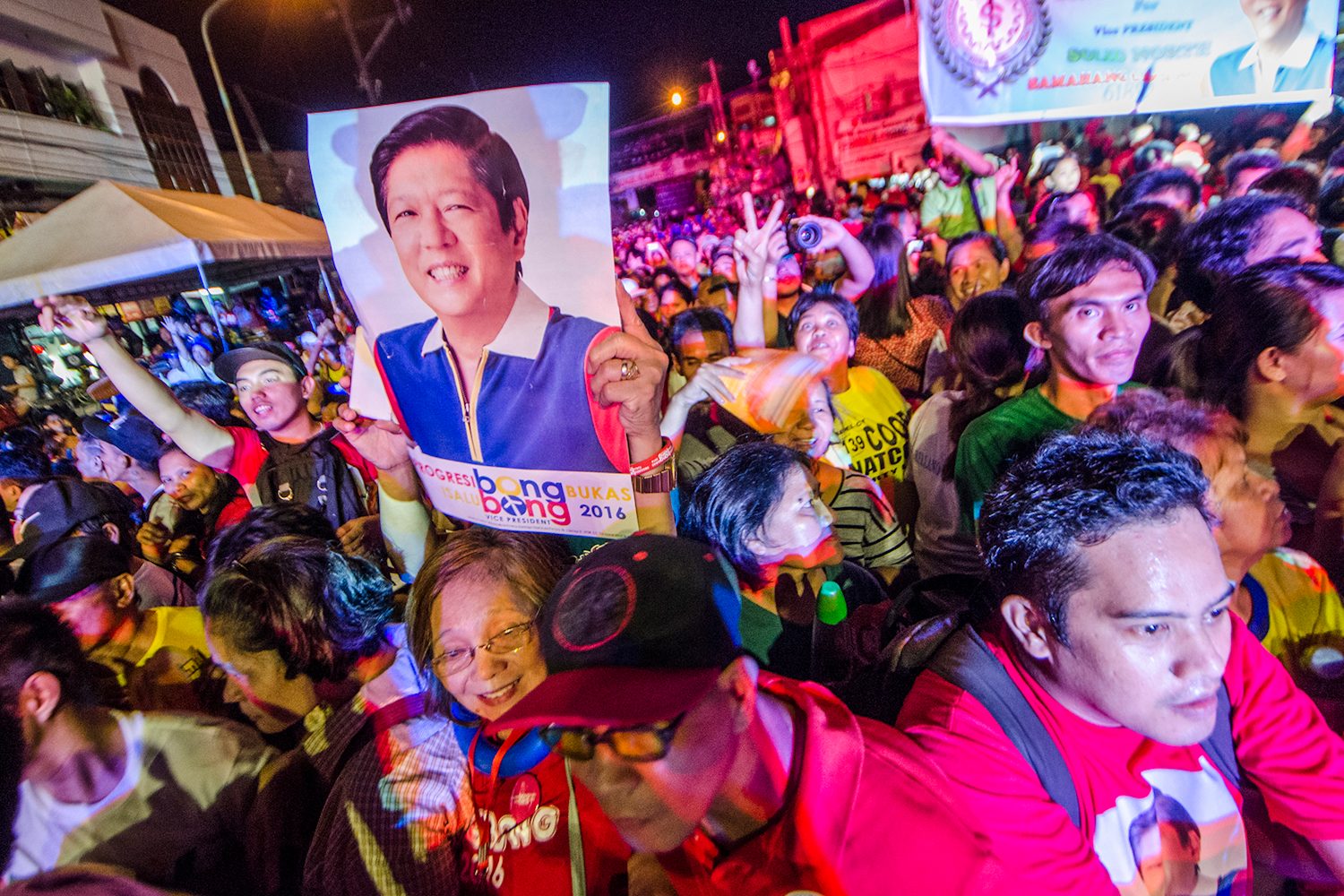SUMMARY
This is AI generated summarization, which may have errors. For context, always refer to the full article.

MANILA, Philippines – The fact that the late strongman’s son and namesake, former senator Ferdinand “Bongbong” Marcos Jr, got 14 million votes in the vice presidential polls in May meant the country is no longer traumatized by its Martial Law experience, according to the government’s chief counsel.
Solicitor General Jose Calida made the assertion before the Supreme Court (SC) on on Wednesday, September 7, the second day of the oral arguments on the former president’s interment at the Libingan ng mga Bayani.
“The 14,195,344 votes that Bongbong Marcos garnered in the last elections shows that there is no more national trauma as regards the Martial Law regime,” said Calida. (Read updates here: Live: SC oral arguments on Marcos burial at Libingan ng mga Bayani)
Calida is representing the following government officials named as respondents in 6 petitions – since consolidated into one – filed before the SC by activists and Martial Law victims opposed to a hero’s burial for Marcos:
• Executive Secretary Salvador Medialdea
• Deputy Chief of Staff of the military’s Reservist and Retiree Affairs Rear Armiral Ernesto Enriquez
• Armed Forces of the Philippines chief General Ricardo Visaya
• Defense Secretary Delfin Lorenzana
• Philippine Veterans Affairs Office (PVAO) Administrator Lieutenant General Ernesto Carolina
The Marcos heirs are represented by lawyer Hyacinth Rafael-Antonio.
During his interpellation of Calida, Justice Alfredo Benjamin Caguioa cited Republic Act Number 10368 or the Human Rights Victims Reparations Act.
RA 10368 recognizes the horrific ordeal of Martial Law victims by compensating them for the damages they suffered. The law also mandates the establishment of memorials for the victims.
During the first round of oral arguments, some female Martial Law victims recounted their experiences of torture and abuse under Marcos’ administration.
Caguioa asked Calida if allowing a hero’s burial for Marcos would be a form of “retraumatization” for them and all the other victims.
The Supreme Court justice, citing Commission on Human Rights chair Chito Gascon in the first round of oral arguments, said that reparation is not merely about giving money for the victims’ suffering and pain but also recognzing what transpired and ensuring the atrocities will not happen again.
“The pain that they (Martial Law victims) feel do not reflect the national psyche today?” asked Caguioa.
Calida then replied: “I am a human being. I feel their pain. But we’re in a court of law. There are other venues where those pain can be expressed by the victims.”
He added that when the SC asked the victims to recount their experiences before the court last week, that is a form of retraumatization.
Calida and the Marcos family claim that the victims’ monetary reparations and other forms of recognitions would not be affected by the decisions of the case concerning Marcos’ burial. – Rappler.com
Add a comment
How does this make you feel?
There are no comments yet. Add your comment to start the conversation.